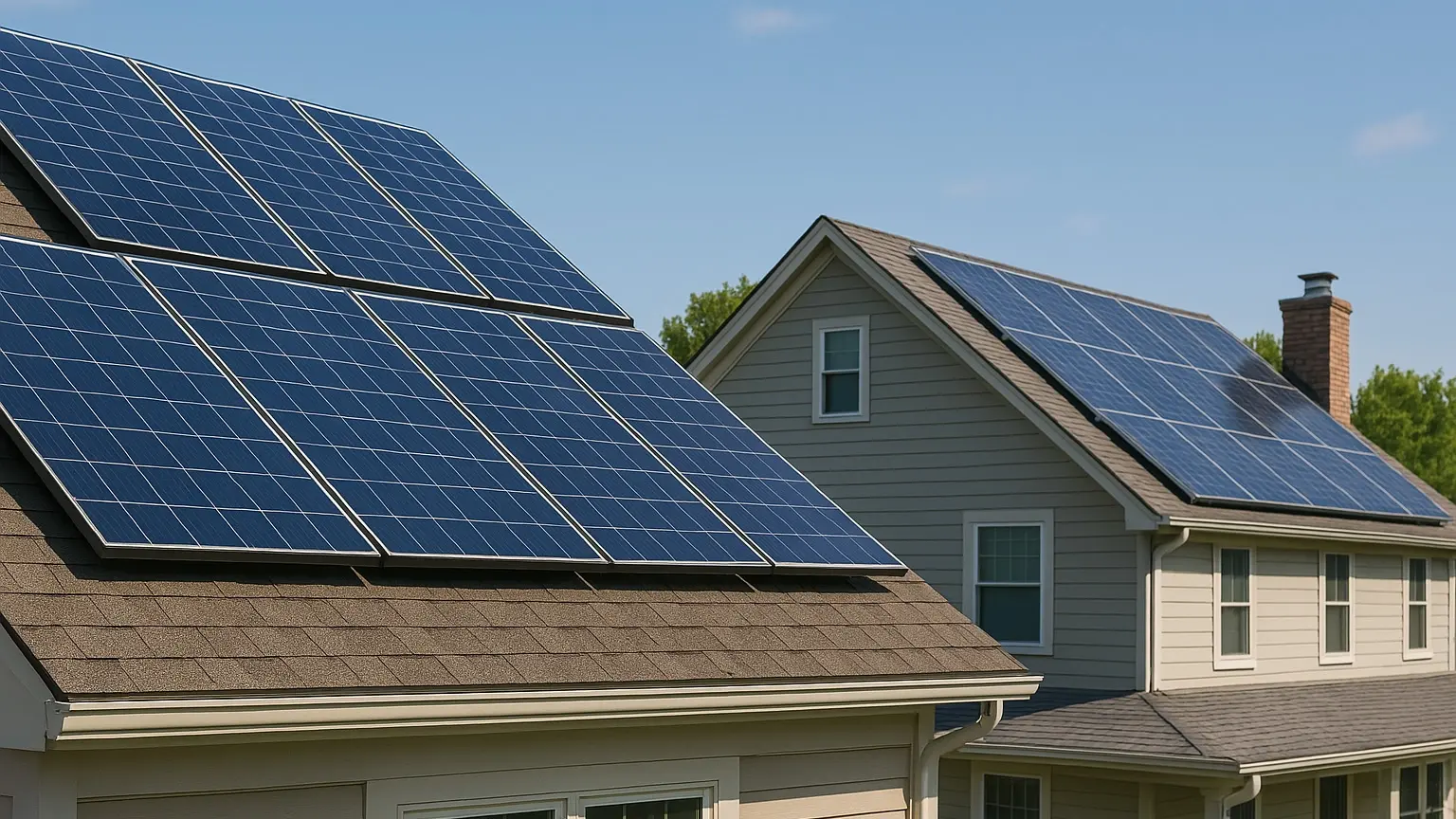Should you buy or lease solar panels? Which option is better?


Are you considering going solar but unsure whether to buy or lease solar panels? It’s a common question—and while both options allow you to tap into clean, renewable energy, buying your solar system is almost always the smarter long-term investment.
In this article, we’ll compare both alternatives and show you why owning your solar system is the smartest financial and energy decision.
| Feature |
Buying solar panels |
Leasing solar panels |
| Ownership |
You own the system |
The leasing company owns it |
|
Long-term savings |
Higher savings with no extra payments. |
Limited savings—monthly payments continue without ownership. |
|
Tax incentives |
You can claim government subsidies and benefits. |
You cannot claim incentives; they go to the leasing company. |
|
Energy buyback |
Eligible for net metering |
Usually not allowed |
|
Home value |
Increases your property value. |
No impact on property value. |
When you buy a solar system, you gain more control over your electricity usage and reduce your reliance on traditional utility companies. While financing may involve some payments, they’re predictable and can often be lower than your regular electricity bills.
As the system owner, you can also enroll in energy buyback programs, where utility companies pay you for the extra energy your panels produce but you don’t use—bringing you long-term income.
In contrast, when leasing, you continue making monthly payments without building equity or accessing these direct financial benefits.
Buying solar panels qualifies you for valuable federal tax credits, local rebates, and green energy financing programs. These can significantly reduce the upfront cost of installation.
With leasing, these incentives go to the leasing company—not to you.
Owning a solar system increases your home's market value, which can be a major plus if you decide to sell.
According to real estate experts, homes with owned solar systems tend to sell faster and for more money. Buyers appreciate lower electricity costs and the added energy efficiency.
Leased solar panels, however, can complicate the transaction, as new buyers must agree to assume the lease.
Leased panels don’t offer this benefit and may even complicate the selling process.
When you buy your solar system, you’re not tied to a third-party provider. You control your rates and usage, and you’re protected from rising electricity costs.
Leasing keeps you dependent on a solar provider, whose terms and pricing can change over time.
Get a free solar savings analysis and discover how much you could stop paying on your electric bill.
Our team will guide you with a personalized estimate and walk you through the best financing options available.